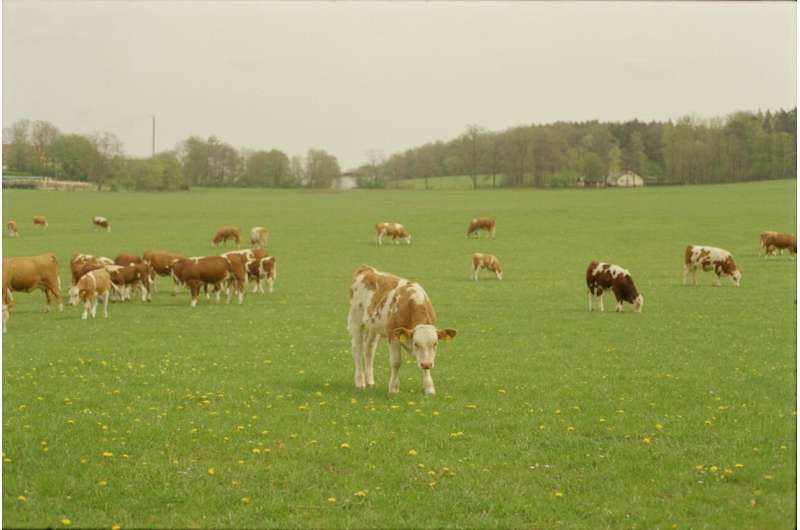This article has been reviewed according to Science X's editorial process and policies. Editors have highlighted the following attributes while ensuring the content's credibility:
fact-checked
peer-reviewed publication
trusted source
proofread
Unlocking the climate benefits of dietary substitutions: The impact of land use policy

Substituting a 100g portion of beef meatballs with pea protein "meatballs" delivers the same climate benefit as avoiding a 16 km (10 mile) drive. Conversely substituting one liter of cows' milk with soy milk will not necessarily benefit the climate directly. Nonetheless, effective land use policy could turbocharge climate benefits of simple diet substitutions, increasing climate benefits to 48 km (29 mile) and 6 km (4 mile) driving-equivalents for meatball and cow milk substitution, respectively.
Apart from trying to make our money go further, we're all faced with ethical conundrums when we go shopping. Some of these are far more complex than we might realize. A new study by an international team of scientists led by Bangor University has quantified how seemingly simple dietary switches can make a positive contribution to the environment.
However, those benefits are much greater for some switches than others, due to complex ripple effects across interlinked agrifood systems and land uses. For example, a switch to soymilk may mean a reduction in calves available for the beef industry, while less demand for meat and dairy could mean that more land is available for other uses, such as growing trees to further mitigate against greenhouse gas emissions.
The study, published in the Journal of Cleaner Production, was based on German agricultural systems, but the results are widely applicable across European and temperate zone countries. Conclusions point to a clear role for consumers and policy makers in the fight against climate change. Overall, the study confirms that shifting away from livestock protein and toward plant-based protein is beneficial for our climate. It also illustrates that these benefits are much greater for beef, rather than milk, substitution.
Marcela Porto, lead author on the study and Ph.D.-graduate from Bangor University, explains, "We applied a combination of farm modeling, scenario analysis and consequential life cycle assessment to calculate the likely greenhouse gas emission consequences of switching meatballs for pea-protein balls, and cow milk for soy milk. This process illustrated a complex cascade of displacement effects across arable and livestock systems within Germany, but also across global markets for commodities."
Legumes (such as peas and soybeans) fix nitrogen directly from the air, reducing the need for chemical fertilizers, and are rich sources of dietary protein and fiber. They require only a fraction of land needed to produce a unit of digestible protein, compared with livestock systems. Increasing the uptake of these "underutilized crops" to drive positive change across food systems is a central focus of the TRUE and RADIANT projects that underpinned this study.
"Over recent decades, the popularity of legumes has declined across Europe as food systems have concentrated around a small number of high-input crops producing calories for humans and livestock. But there is increasing interest in the reintroduction of legumes as 'positive disruptors,' to drive the kind of transformations across food systems and land uses needed to meet Paris Agreement Climate Change targets," says David Styles, study coordinator and honorary lecturer at Bangor University.
The study highlights the huge role that land use policy can play in leveraging climate benefits from ethical consumption choices. Livestock production is directly or indirectly responsible for most of the land used for food production globally. Effective policies that promote nature-based solutions for climate change, such as afforestation on land spared from livestock production, could multiply the climate benefits of dietary shifts by up to three-fold.
More information: Marcela Porto Costa et al, Environmental and land use consequences of replacing milk and beef with plant-based alternatives, Journal of Cleaner Production (2023). DOI: 10.1016/j.jclepro.2023.138826
Journal information: Journal of Cleaner Production
Provided by Bangor University





















